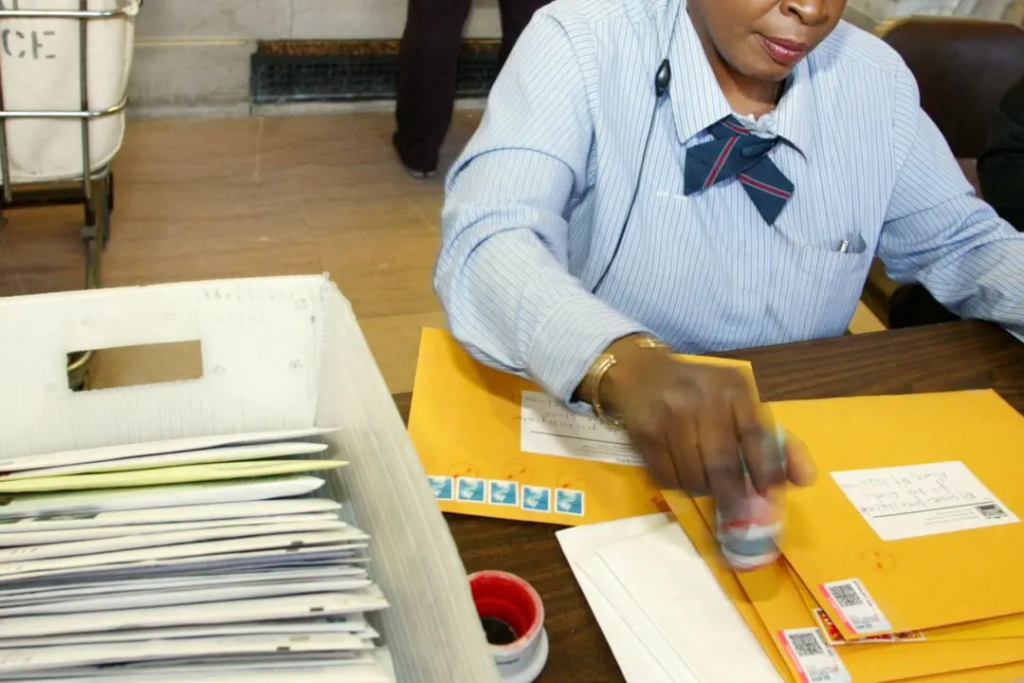
The IRS is sending out the notices to millions of people starting in January.
The Internal Revenue Service (IRS) next week will start sending letters to millions of Americans regarding unpaid tax bills, resuming a practice that was suspended several years ago.
The federal tax agency said in a recent news release that automated letters and “collection notices” will start going out “in January,” although it did not provide a specific timetable.
The letters will be sent to people with tax debts before to the tax year 2022 as well as tax exempt organizations, businesses, and trusts and estates with tax debts before 2023.
“These notices and letters were previously paused due to the pandemic and high inventories at the IRS but will gradually resume during the next several months,” the release says. “Current tax year 2022 individual and third quarter 2023 business taxpayers began receiving automated collection notices this fall as the IRS took steps to return to business as usual.”
The pandemic-related pause in letters “meant that some taxpayers who have long-standing tax debt have not received a formal letter or notice from the IRS in more than a year while some of this older collection work has been paused,” it said. “To help the taxpayers in this category as the normal processes resume, the IRS will be issuing a special reminder letter to them starting next month.”
What the letter will include is a reminder to the taxpayer regarding their “liability” and will tell them to contact the agency or make “alternative arrangements” to settle the debt. Taxpayers are also urged to “carefully read any letter or notice they receive” before they call the IRS.
“This letter will remind taxpayers about their tax liability, giving them an opportunity to address the tax issue before the next round of letters are issued. After receiving the reminder mailing, these taxpayers with long-standing unresolved tax issues will receive the next notice, informing them of a more serious step in the tax collection process,” it said.
The IRS said it is also waiving failure-to-pay penalties for certain taxpayers who were impacted during the tax years 2020 and 2021, estimating that some 5 million tax returns are eligible for the penalty relief.
Warnings
Generally, the CP14 notice is the first one the agency sends out for an unpaid tax balance, which is usually followed by three to four reminder letters that are sent out every five weeks or so, said Darren Guillot, who previous served as an IRS deputy commissioner.
“You can’t bury your head and pretend it’ll go away,” he told CNBC earlier this month. “The vast majority of taxpayers can set up a payment plan for themselves” by scanning a QR code, he added.
Multiple tax specialists warned that Americans who receive these letters could face significant penalties, including funds being taken out of their bank accounts by the federal agency.
Daniel Gibson, a tax partner at accounting firm EisnerAmper in New Jersey, told The Messenger that anyone who receives the letter from the IRS should attempt to resolve it.
“People have been sticking their head in the sand since time immemorial,” he said. “They see something from the IRS, and they don’t want to open the envelope.”
If the IRS sends a final notice, “you can wake up one morning and see money is taken out of your account” to pay the Treasury Department, he warned.
A third letter sent by the IRS will likely include a demand to pay the IRS within 90 days or file an appeal, Mr. Gibson noted. When that happens, the taxpayer will be “dealing with revenue agents, and their objective in life is to collect money. They can be somewhat ruthless,” he said.
For millions of Americans, the initial notices sent in 2024 “will be an unpleasant wake-up call,” Niles Elber, a tax lawyer at Caplin & Drysdale, told the outlet. It’s because many likely have not received the notices for the past two years due to the pandemic-related pause.
“Ignoring the problem will not stop the notices from coming, which will ratchet up in intensity and ultimately lead to tax liens and levies,” he added. “Taxpayers who have outstanding balances should start thinking now about how they are going to pay their tax debt.”
The final notice ‘is your Notice of Intent to Levy,“ and ”if you don’t pay the amount due immediately, the IRS can levy your income and bank accounts, as well as seize your property or your right to property including your state income tax refund to pay the amount you owe,” the IRS website says.
According to a report issued by the IRS last year, more than 9 million Americans owed some $120 billion in back-taxes, penalties, and interest as of September 2022. Tax debt accumulates because there is “usually some sort of a calamity that’s happened, like a health issue, a divorce, a gambling problem,” said Mr. Gibson. “There’s always a story when it comes to the collection problems I’ve seen.”
Jack Phillips is a breaking news reporter with 15 years experience who started as a local New York City reporter. Having joined The Epoch Times’ news team in 2009, Jack was born and raised near Modesto in California’s Central Valley. Follow him on X: https://twitter.com/jackphillips5